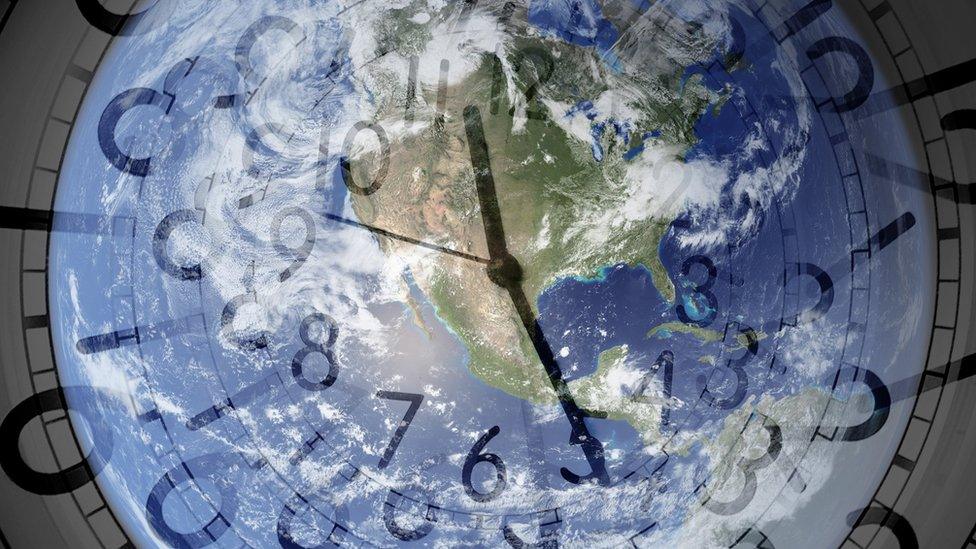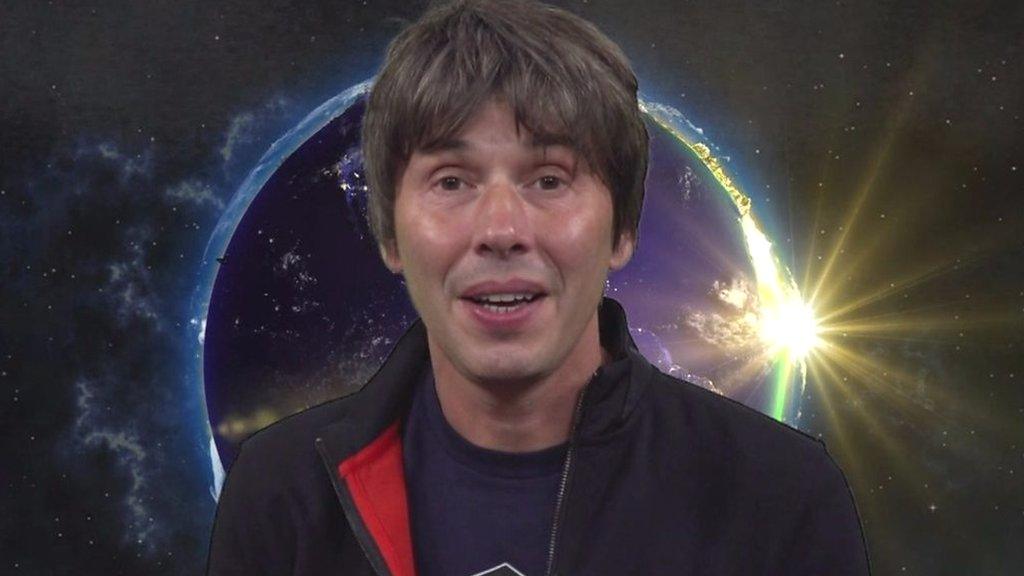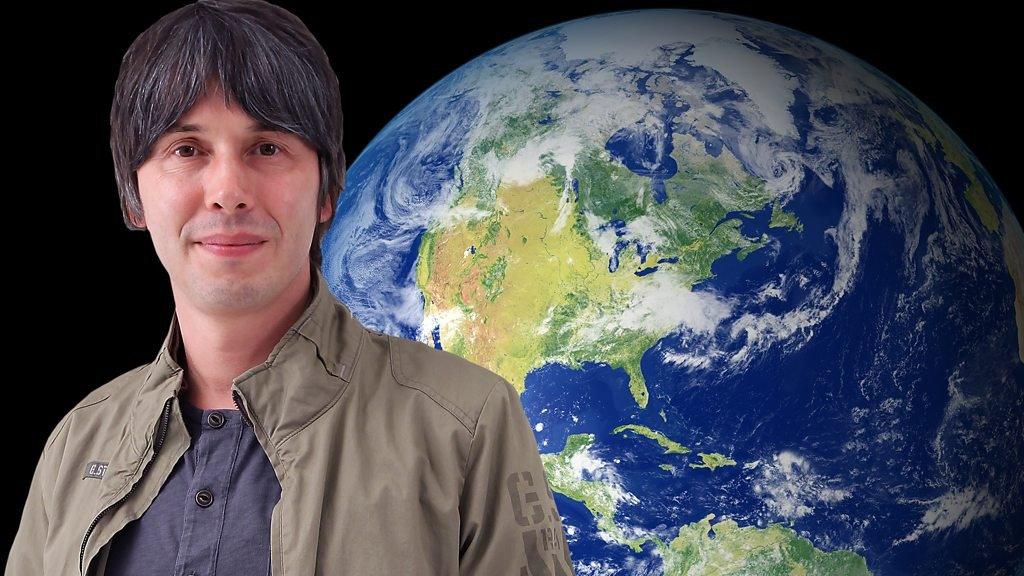Why 2021 could be a shorter year than normal
- Published
- comments

The Earth is moving faster than it ever has in the last 50 years, scientists have discovered, and experts believe that 2021 is going to be the shortest year in decades.
But don't get too excited. It's not nearly Christmas again... In fact, you probably won't even notice the difference as it will only be shorter by a matter of milliseconds.
This is because the Earth is spinning faster on its axis quicker than it has done in decades and the days are therefore a tiny bit shorter.
It is not completely clear why the planet is doing this but the rotation is affected by a number of factors, including the motion of its molten core, the oceans, and its atmosphere.
The clocks may need to "skip a second"

One day is the approximate time it takes for the Earth to make one full spin.
Over the centuries humans have divided that time up into hours, minutes and seconds - and have created ever more accurate ways of measuring that time.
But, because the Erath is currently spinning a little faster, the average 24-hour day in 2021 is expected to be 0.05 milliseconds (one millisecond is a thousandth of a second), shorter than usual.
Leap Years and Leap Seconds

Now you may have heard of a Leap Year - where every four years a day is added to February to make sure that our clocks and calendars keep up with rotation of the Earth.
Well get ready for Leap Seconds.
With an error of only 1 second in up to 100 million years, atomic clocks are among the most accurate timekeeping devices in history.
Astrophysicist Graham Jones says that, if the Earth's rotation gets too far out of sync with the "super steady beat of atomic clocks", then adding or taking away a leap second can be used to bring it back into alignment.
Most clocks know the time because they count how many times something moves back and forth.
Atomic clocks count how many times an atom moves back and forth.
Atomic clocks are currently the most exact clocks of the world. They are also called primary clocks.
"Since the system of leap seconds was introduced in 1972, the Earth's rotation has generally been a bit slow and so far, there have been 27 leap seconds, and they have all been positive.
"In other words, they have all added an extra second to our clocks, enabling the Earth to catch up."

However, recently, the Earth has been getting faster, so no leap seconds have been required since 2016. If the Earth continues to speed up, then we may need to implement a "negative leap second".
This effectively means they may have to adjust their official clocks and take away a second from the year 2021.
Confused? Don't worry - this is very complicated physics...
The only time we should worry about is lunch time!
- Published13 January 2021
- Published21 August 2019

- Published31 July 2019

